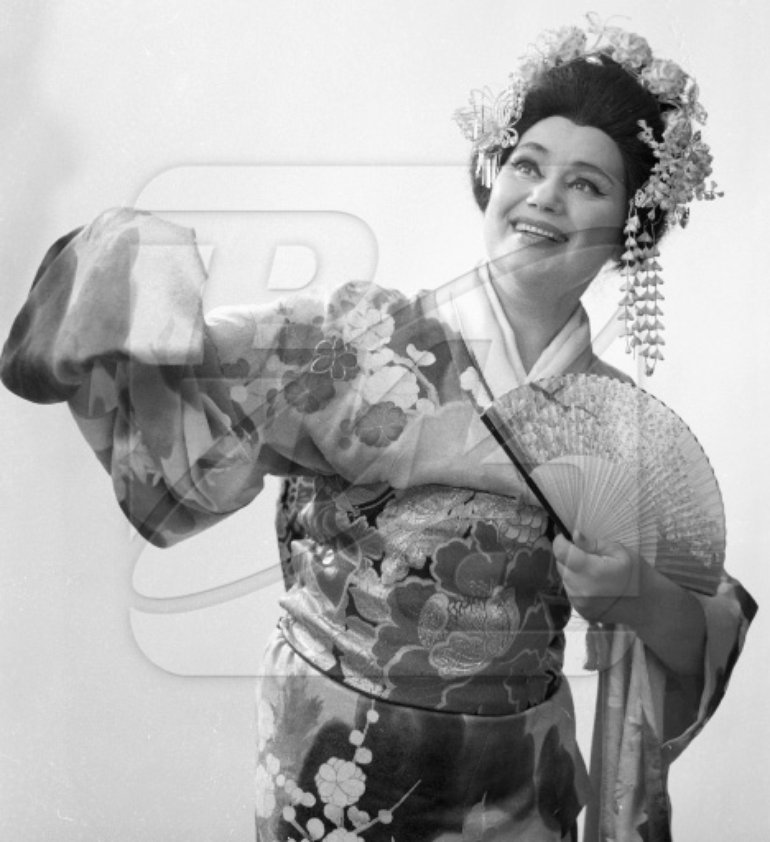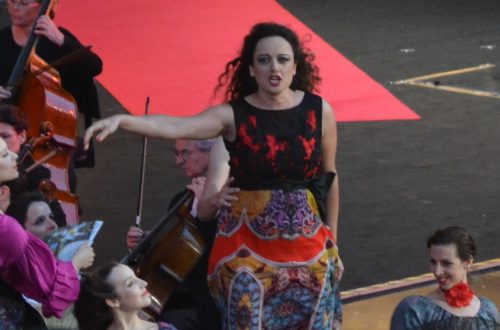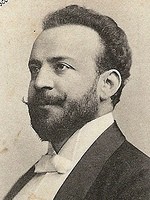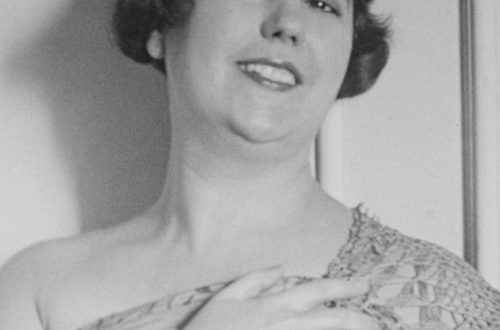
Maria Lukyanovna Bieshu (Maria Biesu) |
Maria Biesu
Maria Biesu… This name is already covered with the breath of a legend. A bright creative destiny, where unusual and natural, simple and complex, clear and incomprehensible merge in wonderful harmony …
Widespread fame, the highest artistic titles and awards, brilliant victories at international competitions, success on the opera and concert stages of the largest cities in the world – all this came to the singer, who works at the Moldovan State Academic Opera and Ballet Theater.
Nature generously endowed Maria Bieshu with everything that a modern opera performer needs. The delightful freshness and fullness of the timbre captivates the sound of her voice. It organically combines an unusually sonorous chest middle register, full-sounding open “bottoms” and sparkling “tops”. Bieshu’s vocals captivate with the effortless perfection of his singing skills and the plastic elegance of his singing line.
Her amazing voice is immediately recognizable. Rare in beauty, his timbre contains a huge exciting expressiveness.
Bieshu’s performance breathes with warmth of the heart and immediacy of expression. Innate musicality nourishes the acting gift of the singer. The musical beginning is always primary in her work. It dictates to Bieshu all the elements of stage behavior: tempo-rhythm, plasticity, facial expressions, gesture – therefore, vocal and stage sides organically merge in her parts. The singer is equally convincing in such diverse roles as the modest, poetic Tatiana and the imperious, cruel Turandot, the gentle geisha Butterfly and the royal maid of honor Leonora (Il Trovatore), the fragile, sweet Iolanta and the independent, proud Zemfira from Aleko, the slave princess Aida and the free commoner Kuma from The Enchantress, the dramatic, ardent Tosca and meek Mimi.
Maria Bieshu’s repertoire includes more than twenty bright musical stage characters. To the above mentioned, let’s add Santuzza in Mascagni’s Rural Honor, Desdemona in Otello and Leonora in Verdi’s The Force of Destiny, Natalia in T. Khrennikov’s opera Into the Storm, as well as leading parts in operas by Moldavian composers A. Styrchi, G. Nyagi, D. Gershfeld.
Of particular note is Norma in Bellini’s opera. It was in this most complex large-scale part, which requires a genuine tragic temperament, obliging to perfect mastery of singing skills, that all facets of the singer’s artistic personality received the most complete and harmonious expression.
Undoubtedly, Maria Biesu is first and foremost an opera singer. And her highest achievements are on the opera stage. But her chamber performance, which is distinguished by a high sense of style, depth of penetration into the artistic image, and at the same time extraordinary sincerity, cordiality, emotional fullness and freedom, has also gained great success. The singer is close to the subtle, lyrical psychologism of Tchaikovsky’s romances and the dramatic pathos of Rachmaninov’s vocal monologues, the majestic depth of ancient arias and the folklore flavor of the music of Moldavian composers. Bieshu’s concerts always promise new or rarely performed pieces. Her repertoire includes Caccini and Gretry, Chausson and Debussy, R. Strauss and Reger, Prokofiev and Slonimsky, Paliashvili and Arutyunyan, Zagorsky and Doga…
Maria Biesu was born in the south of Moldova in the village of Volontirovka. She inherited her love for music from her parents. Even at school, and then at the agricultural college, Maria participated in amateur performances. After one of the Republican reviews of folk talents, the jury sent her to study at the Chisinau State Conservatory.
As a freshman, Maria performed Moldovan folk songs at the concerts of the Sixth World Festival of Youth and Students in Moscow. In her third year, she was invited to the Fluerash Folk Music Ensemble. Soon the young soloist won the recognition of the public. It seemed that Maria found herself … But she was already attracted to the opera stage. And in 1961, after graduating from the conservatory, she entered the troupe of the Moldavian State Opera and Ballet Theatre.
The very first performance of Biesu as Floria Tosca revealed the outstanding operatic talent of the young singer. She was sent for an internship in Italy, at the La Scala theater.
In 1966, Bieshu became a laureate of the Third International Tchaikovsky Competition in Moscow, and in 1967 in Tokyo she was awarded the first prize and the Golden Cup prize in the First International Competition for the best performance of Madame Butterfly.
The name of Maria Bieshu is gaining wide popularity. In the roles of Cio-Cio-san, Aida, Tosca, Liza, Tatiana, she appears on the stages of Warsaw, Belgrade, Sofia, Prague, Leipzig, Helsinki, performs the part of Nedda in New York at the Metropolitan Opera. The singer makes long concert tours in Japan, Australia, Cuba, performs in Rio de Janeiro, West Berlin, Paris.
…Different countries, cities, theaters. A continuous series of performances, concerts, filming, rehearsals. Daily many hours of work on the repertoire. Vocal class at the Moldovan State Conservatory. Work in the jury of international and all-Union competitions. Difficult duties of a deputy of the Supreme Soviet of the USSR… Such is the life of Maria Bieshu, People’s Artist of the USSR, laureate of the Lenin Prize, laureate of the State Prizes of the USSR and the Moldavian SSR, a remarkable communist artist, an outstanding opera singer of our time.
Here are just some of the responses to the art of the Moldavian Soviet singer.
Meeting with Maria Biesu can be called a meeting with real bel canto. Her voice is like a precious stone in a beautiful setting. (“Musical Life”, Moscow, 1969)
Her Tosca is great. The voice, smooth and beautiful in all registers, the completeness of the image, the elegant singing line and high musicality put Biesha among the world’s contemporary singers. (“Domestic voice”, Plovdiv, 1970)
The singer brought exceptional lyricism and, at the same time, strong drama to the interpretation of the image of little Madame Butterfly. All this, along with the highest vocal skill, allows us to call Maria Biesu a great soprano. (“Politics”, Belgrade, 1977)
The singer from Moldova belongs to such masters, who can be safely entrusted with any part of the Italian and Russian repertoire. She is a top notch singer. (“Dee Welt”, West Berlin, 1973)
Maria Bieshu is a charming and sweet actress who can be written about with pleasure. She has a very beautiful, smoothly going up voice. Her behavior and acting on stage is just great. (The New York Times, New York, 1971)
Miss Bieshu’s voice is an instrument that pours beauty. (“Australian Mandi”, 1979)
Source: Maria Bieshu. Photo album. Compilation and text by E. V. Vdovina. – Chisinau: “Timpul”, 1986.
Pictured: Maria Bieshu, 1976. Photo from RIA Novosti archive





